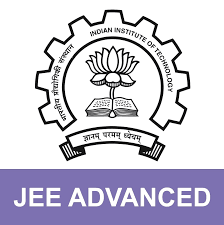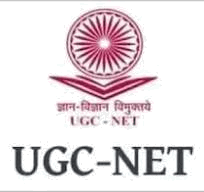
Introduction:
In today's competitive and rapidly evolving business landscape, individuals seeking a successful career often turn to higher education for a competitive edge. Among the various options available, pursuing a Master of Business Administration (MBA) has become increasingly popular. An MBA program provides a comprehensive education in business management and equips graduates with a versatile skill set that can propel them from the classroom to the boardroom. This article explores the ways in which an MBA prepares individuals for success in the corporate world and highlights the key benefits of obtaining this prestigious degree.
Building a Strong Professional Network: Networking plays a crucial role in career advancement, and an MBA program offers an excellent platform to connect with a diverse group of individuals. Classrooms are filled with students from different backgrounds, industries, and cultures, providing ample opportunities to build meaningful relationships. Engaging in group projects, attending seminars, and participating in networking events foster connections that can last a lifetime. These connections often prove invaluable when seeking career advice, job opportunities, or partnerships later on. Moreover, many business schools have strong alumni networks, which can open doors to mentorship programs and professional development opportunities.
Developing Leadership and Soft Skills: Successful leaders possess a combination of technical expertise and soft skills. MBA programs place a significant emphasis on developing leadership qualities and enhancing interpersonal skills. Through workshops, team projects, and leadership seminars, students learn to communicate effectively, motivate teams, resolve conflicts, and make strategic decisions. These skills are essential for navigating the complex dynamics of the corporate world and assuming managerial or executive roles.
Enhancing Career Opportunities: An MBA degree often acts as a catalyst for career advancement and provides a competitive advantage in the job market. Many organizations actively seek MBA graduates for leadership positions due to their extensive business knowledge and skill set. The degree signals to employers that the individual has invested time and effort into honing their business acumen, making them more desirable candidates for managerial roles. Additionally, business schools often have strong career services departments that facilitate job placements, internships, and networking events with potential employers. The alumni network can also play a significant role in identifying job opportunities and providing referrals.
Eligibility Criteria for an MBA Program
Before embarking on the journey to pursue an MBA, it is essential to understand the eligibility criteria set by business schools. While specific requirements may vary across institutions, certain common criteria determine an individual's eligibility for admission into an MBA program. Here are some key factors to consider:
Educational Qualifications: Most MBA programs require applicants to hold a bachelor's degree from a recognized university or college. The field of study is generally not restricted, although a background in business or related disciplines may be preferred by some institutions.
Work Experience: Many business schools prefer candidates with prior work experience, as it adds practical insights and diverse perspectives to classroom discussions. The required work experience can range from a minimum of one to several years, depending on the program and its focus.
It is crucial to note that while meeting the eligibility criteria is necessary, it does not guarantee admission. MBA programs often consider a holistic profile assessment, including academic achievements, professional accomplishments, extracurricular involvement, and personal qualities, when making admission decisions. Therefore, aspiring MBA candidates should thoroughly research the specific requirements of their desired programs and present a compelling application that highlights their strengths and potential for success.
Entrance Exams: Admissions to MBA programs often involve standardized tests such as the MBA Graduate Management Admission Test (GMAT) or the Graduate Record Examination (GRE). These exams assess a candidate's aptitude in areas like critical thinking, analytical reasoning, and verbal and quantitative skills.
Letters of Recommendation: Business schools commonly require applicants to submit letters of recommendation from employers, supervisors, or academic mentors. These letters highlight the candidate's skills, work ethic, leadership potential, and suitability for an MBA program.
Statement of Purpose/Essays: Applicants are usually asked to provide a statement of purpose or essays that detail their career aspirations, reasons for pursuing an MBA, and how the program aligns with their goals. This allows the admissions committee to gauge the candidate's motivation and clarity of purpose.
Interviews: Some business schools may conduct interviews as part of the admissions process. Interviews provide an opportunity for the applicant to showcase their interpersonal skills, communication abilities, and overall fit for the program.
Career Scope with an MBA Degree
Obtaining an MBA degree opens up a wide range of career opportunities across various industries and positions. The versatile skill set acquired through an MBA program equips graduates with the knowledge and expertise to excel in the corporate world. Here are some key career paths where an MBA degree can significantly enhance prospects: Management Roles: MBA graduates are well-suited for managerial positions, such as project managers, department heads, or operations managers. Their comprehensive understanding of business functions and strategic thinking skills make them valuable assets in leading teams and driving organizational success.
Many MBA graduates pursue careers in management consulting, providing expert advice to businesses on improving performance, solving complex problems, and implementing strategic initiatives. The analytical and problem-solving skills developed during an MBA program are particularly relevant in this field.
It is important to note that an MBA degree serves as a foundation for career growth, and professional success also relies on continuous learning, adaptability, and the ability to apply theoretical knowledge to real-world scenarios. As the business landscape continues to evolve, MBA graduates who stay updated with industry trends and embrace lifelong learning will thrive in their careers.
Entrepreneurship: An MBA can serve as a launchpad for aspiring entrepreneurs, providing them with the necessary business acumen and leadership skills to start their own ventures. The program equips individuals with knowledge in areas like business planning, finance, marketing, and operations, enabling them to navigate the challenges of establishing and growing a successful business.
Finance and Investment: MBA graduates often find opportunities in corporate finance, investment banking, private equity, or venture capital. Their strong understanding of financial concepts and analytical abilities make them well-suited for roles involving financial analysis, investment decision-making, and strategic financial planning.
Marketing and Brand Management: With their knowledge of market research, consumer behavior, and strategic marketing principles, MBA graduates can pursue careers in marketing management or brand management. They play a crucial role in developing marketing strategies, launching new products, and managing brand portfolios.
Global Business: In an increasingly interconnected global economy, MBA graduates with a focus on international business can explore opportunities in global operations, international trade, or expansion into new markets. Their understanding of cross-cultural dynamics and ability to navigate global business challenges make them valuable assets in multinational corporations.
Conclusion: In an increasingly competitive business world, obtaining an MBA can significantly enhance an individual's chances of success. The program equips students with a comprehensive understanding of various business disciplines, nurtures valuable connections, develops leadership and soft skills, and opens up numerous career opportunities. However, it is important to note that success in the corporate world is not solely dependent on an MBA degree. Practical experience, continuous learning, and a passion for growth also contribute significantly to long-term success.
Related News
View AllRelated Articles
View AllTrending Articles
View All-

GMAT 2023: Registration, Dates, Eligibility, Scholarship, Syllabus, and Exam Pattern
Jul, 19, 2023 Read More -

NMAT 2023: Save the Dates Registration, Exam Pattern, Syllabus and Selection
Jul, 18, 2023 Read More -

Cracking CAT 2023: Essential Guide to Exam Dates, Notification, Registration, and Syllabus
Jul, 17, 2023 Read More
Trending News
View All-

NEET UG 2024 Cutoff: Top 10 NIRF Ranked Medical Colleges & Expected Percentiles
May, 18, 2024 Read More -

MAH CAP Counseling 2024 Registration Start: Key Dates, Eligibility, and Step-by-Step Guide
May, 18, 2024 Read More -

BSE Odisha Result 2024 Expected Today: Live Updates - Check Odisha 10th Result Date
May, 17, 2024 Read More -

TS PGECET 2024: Correction Window Open till May 16, Exam Dates, Eligibility & Registration Details
May, 16, 2024 Read More -

Odisha CHSE 2024 Live Updates: Check Odisha 12th Result Date, Steps to Download
May, 16, 2024 Read More













 back
back

